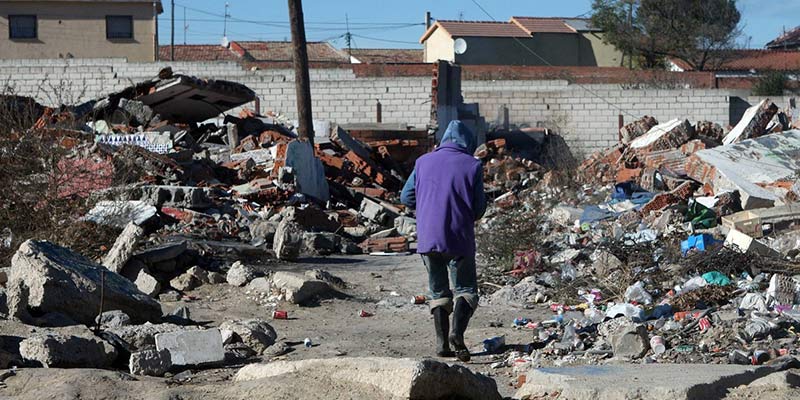Hakuna Hakuna Manager of the Compartiriado at La Cañada
A mere 13 km. from Madrid we find a shantytown known as La Cañada Real, which for years has been the "drug supermarket". largest in Europe. In this place there are many people working as slaves in the 21st century, working 24 hours a day, seven days a week for the traffickers and sellers themselves,Hakuna of whatever it takes, for a small fee as payment. They are known as "machacas".
In order to understand what we do at La Cañada, it is useful to define what is "compartiriado". This is how the priest José Pedro Manglano, creator of the Hakuna youth movement, explains it in his book Santos de copas: "Compartiriado: I do not come to help you by dedicating something of mine to you, but I come to share what I have with you and for you to share with me what you have".
Smiles in the face of nightmares
It all starts with the mime with which we start to make the coffees, buy the buns and get together to drive there. We put on our best smiles to go down to hell on earth. We greet our colleagues from the Community of MadridWe clear the table. Standing up and with chairs we invite our friends from La Cañada to a coffee, they sit down and tell us what they want, we listen.
They come with their black hands and their clothes, which in many cases are small, dirty and torn. Their sneakers look like they have been through a shredder from all the miles they have walked. We listen. And little by little words come out of their mouths that probably no one had ever paid attention to before. Coffee, affection and listening. That's enough to notice how their eyes light up, how they go from being labeled by society to feeling that someone is there, by their side, for them. The age range goes from 18 to over 75 years old.
They tell us about their lives, the affection they feel for their loved ones -who, in many cases, have disowned them-, they reveal to us with sadness the murky moment when they began to get into hell. They explain to us that what they had at hand was not enough to alleviate a thirst that began much earlier. People of all ages who were looking to escape their lives and flee to an alternative reality that, they believed, would provide them with drugs. They all know where they are, in the worst nightmare a person can have.
The return home is almost always the same. The smiles fall and a bittersweet taste remains, sour for what we have lived, and sweet to know that the time we have been with them has served to find the light in their eyes again, that with so little we have achieved so much.
As our brothers and sisters
In this sharing We try to make them feel like our brothers and sisters in that small moment when they are with us. Society tries to dehumanize them and to cross them out, we move that cross to try to turn it into the Cross of Christ and we learn to love it and welcome it. We know that it is practically impossible to get them out, it only depends on them wanting to.
In a past case, a person decided to take the step and leave because, as he told me personally, with us he had felt that his life was important to someone, that it mattered to us that he was there and in that way. We can only pray for them and wish that He will give them the strength, that they will see the reason to try and do it.











